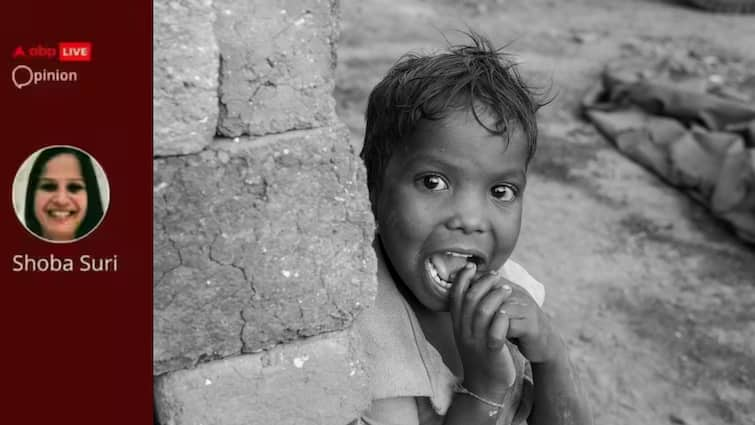India stands as a paradox. A nation with an array of flagship nutrition programmes: National Food Security Act, Integrated Child Development Services (ICDS), PM Poshan Scheme, yet undernutrition persists like a stubborn shadow, with millions of children and mothers trapped in cycles of hunger and poor health. The nation has reaffirmed its commitment to fight malnutrition, emphasising a unified approach to strengthen these initiatives. Despite substantial intent and investment, the challenge lies in fragmentation with multiple schemes operating in silos, leaving gaps that swallow progress.
According to the data from the National Family Health Survey-5 (NFHS-5, 2019-2021), approximately 35.5% of children under five in India are stunted (chronic malnutrition affecting growth), 19.3% are wasted (acute malnutrition leading to low weight-for-height), and 32.1% are underweight. Though stunting has declined from 48% in 2005–2006 to 35.5%, India remains far from global targets, with urban stunting still at 30.1%. Service gaps add to the challenge. ICDS reaches 80% of eligible children, but only 62% receive food supplements; maternal health coverage drops from 94% antenatal to 61% postnatal care. Vulnerable groups such as Scheduled Tribes face even higher levels of malnutrition, with stunting exceeding 40%.
India’s efforts to tackle malnutrition span several ministries, each with its own priorities, budgets, and monitoring systems. For instance, the Ministry of Women and Child Development uses the POSHAN Tracker, the Ministry of Health and Family Welfare relies on HMIS, while agriculture has its own systems. While these mechanisms are important, they often function separately, making it harder to pool resources, share data, and deliver fully integrated solutions. Initiatives like the National Nutrition Mission (POSHAN Abhiyaan) aim to bring greater convergence, but putting this into practice remains a challenge. At the same time, factors such as poverty, poor sanitation, and limited dietary diversity continue to contribute to undernutrition, highlighting the need for more connected and community-centred approaches.
Improving nutrition outcomes demands coordinated, multi-sector action beyond the health system. Food production ensures diverse diets, safe water and sanitation prevent infections, healthcare delivers essential services, and maternal counselling promotes optimal feeding. When these domains converge, they reinforce each other to break the cycle of malnutrition.
Odisha’s Multi-Sectoral Nutrition Action Plan and initiatives like Swabhimaan illustrate this, where women’s self-help groups were mobilised to link agriculture, health, and social protection services to strengthen nutrition outcomes. These experiences show that convergence works in practice, but to make it sustainable and scalable, it must be embedded in local governance and planning. Government-led initiatives, such as millet promotion programs and community kitchen gardens, further support these efforts by integrating local food systems into national nutrition strategies. Odisha’s ‘Tiki Mausi’ shows how behaviour change communication, when rooted in local culture, can complement large programs like POSHAN Abhiyaan. By using local language and relatable storytelling, Tiki Mausi translates policy into everyday practices on health, nutrition, and WASH, as a bridge between policy and people.
Building on this approach, convergence platforms can evolve into Community Nutrition Hubs, functioning as integrated, village-level spaces for health and nutrition, to align with the Women and Child Development (WCD) guidelines, particularly those supporting the Saksham Anganwadi initiative under Poshan 2.0 and to ensure these hubs function as effective “one-stop” models for families. Some successful prototypes already exist: ‘Nand Ghar’, modernised Anganwadi centres, which integrate nutrition, health, education, and skill development in one facility, offering a blueprint for convergence at scale. With 9,000 centres across India, reaching 3.6L children, 2.7L women across 16 states, Nand Ghars are strengthening integrated services in health, nutrition, education, and skilling, directly impacting millions of women and children. They also empower women through livelihood training and entrepreneurship support. Recognised as a scalable public–private partnership (PPP) model, Nand Ghars complement government programs like POSHAN Abhiyaan and ICDS, creating a sustainable blueprint for holistic community development.
Similarly, ‘Hindustan Unilever’s Prabhat’ initiative demonstrates how corporate-community partnerships can combine nutrition awareness, safe water, and livelihood promotion to strengthen resilience at the village level. Prabhat has impacted over 8 million people across 21 states, serving as a model of how businesses can create shared value and contribute to inclusive, sustainable growth.
Other promising models are also emerging- The ‘Nutrition Smart Villages’ initiative links agriculture, women’s collectives, and nutrition education to improve dietary diversity and household food security. More recently, the Women-Led ‘Food, Nutrition, Health & WASH’ initiative in Jharkhand has expanded its coverage to 263 blocks, empowering self-help groups to deliver integrated services-ranging from growth monitoring to safe water access, to localise convergence and build community trust.
The Tata Trusts, through their India Nutrition Initiative (TINI), have played a pivotal role in this expansion by providing resources, training, and strategic support to SHGs, enabling them to address malnutrition and hygiene challenges effectively. Such initiatives empower SHGs to promote dietary diversity, access fortified foods, and enhance WASH practices, aligning with Poshan Abhiyaan goals.
The solution lies in a cohesive, community-driven approach: A Unified Vision: One Village, One Plan, rooted in integrated village development planning through initiatives like the Gram Panchayat Development Plan (GPDP), championed by the Ministry of Panchayati Raj. The process is bottom-up and collaborative, inclusive rural development by empowering villages to craft tailored plans that reflect their unique needs, resources, and aspirations while aligning with India’s broader goals, the 2030 agenda and Viksit Bharat by 2047. Sustainability is central, with village plans incorporating climate-resilient agriculture and renewable energy to support long-term food security. Tools like the e-GramSwaraj portal enhance transparency and accountability, ensuring effective implementation and monitoring. The success of model villages like Punsari in Gujarat and Hiware Bazar in Maharashtra demonstrates the power of unified planning for improvements in livelihoods, nutrition, and resilience.
“One Village, One Plan” represents a pragmatic and scalable policy pathway to accelerate nutrition and development outcomes. The core challenge is not the absence of schemes, but their fragmented execution. By leveraging existing infrastructure such as Nand Ghars, strengthening data convergence through platforms like e-GramSwaraj, and empowering local governance institutions, this model optimises resources without necessitating major new fiscal outlays. It transforms villages into convergence hubs where food, health, WASH, and social protection services are delivered in an integrated manner. The message is clear: uniting food, health, and care under the umbrella of “One Village, One Plan” is a strategic investment in human capital, resilience, and India’s vision of Viksit Bharat by 2047.
(The author is Senior Fellow, Health Initiative, Observer Research Foundation, New Delhi)
Disclaimer: The opinions, beliefs, and views expressed by the various authors and forum participants on this website are personal and do not reflect the opinions, beliefs, and views of ABP News Network Pvt Ltd.



